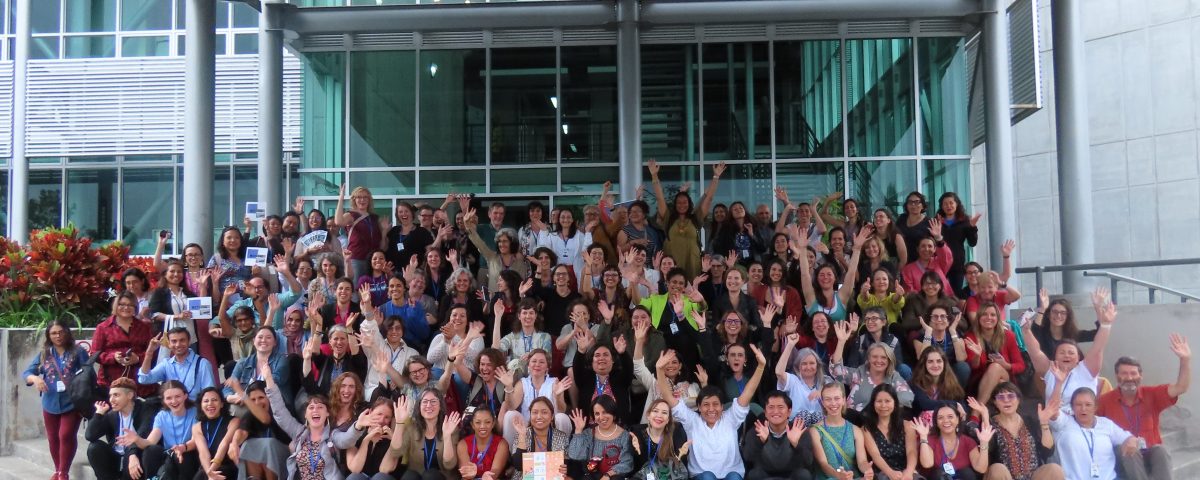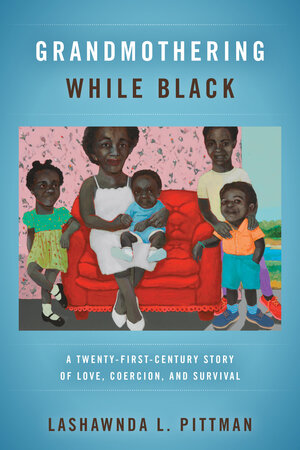
Ukraine Statement
March 23, 2022Visionary Care Studies Award
January 17, 2024Forthcoming in the November 2023 edition of the International Journal of Care and Caring
Individuals and communities have been forced to confront multiple uncertainties inherited from a long-standing care crisis affecting paid and unpaid care workers and receivers, significantly exacerbated by the COVID-19 pandemic. To address these challenges, the Carework Network organized a three-day bilingual conference (7-9 June 2023) at the Universidad de Costa Rica in San José, bringing together over 250 attendees interested in research, organizing, and policy development from roughly 30 countries worldwide*.
The Carework Network is an international organization of interdisciplinary scholars, advocates, policymakers, and stakeholders investigating critical issues related to various care domains. The Third Global Summit focused on social, economic, political, ecological, and technological uncertainties that have long affected the nature of carework in Latin America and the Global South. Participants were challenged to address variations in how carework is understood and organized as an individual or collective responsibility while attending to unique cultures, histories, and capacities in any context. The summit included daily keynote addresses, concurrent panel sessions, and public dialogues to build bridges across academic and advocacy audiences. Furthermore, a “Meet the Authors” book exhibit allowed English and Spanish-speaking authors to engage in critical discussions about care and the intersections of gender, class, race, migration, aesthetics, and activism.
The conference kickstarted with a reception and inaugural Carework Network Awards ceremony. The organization co-awarded El Colectivo 506 for their publication “Las Titas” (co-founders Katherine Stanley Obando and Mónica Quesada Cordero) and The Shape of Care podcast by Dr. Mindy Fried with the Public Engagement Award. The Care Lab, an art-focused project developed by the CARE Aesthetics Research Exploration Project (AHRC) at the University of Manchester, received an honorable mention. Second, with the local conference organizing committee, the Carework Network awarded the Asociación de Trabajadoras Domésticas de Costa Rica (ASTRADOMES), a grassroots domestic worker organization, with the Care in Action Award. Dr. Mignon Duffy (University of Massachusetts, Lowell) received the Founders Award for her continued efforts to support feminist, interdisciplinary, and intersectional viewpoints on care while developing innovations to expand the network’s global and intellectual outreach.
Afterward, in a keynote address, Dr. Rhacel Parreñas (University of Southern California) interrogated the freedom and confinement of live-in migrant workers and the state’s “legal incorporation of domestic workers as bound labor” through an employer-employee relational lens, building on arguments from her award-winning book, Unfree: Migrant Domestic Work in Arab States. Followed by a Q&A with conference participants, this keynote set the stage for the next two days, by laying out many of the critical social, legal, economic, and political issues encountered by millions of care workers.
The second day’s keynote, “Pathways towards Care Collectivization,” led by Dr. Flavia Marco-Navarro, was organized as an interactive discussion among panelists Alejandra Mora Mora, Julie Kashen, and Crystal Simeoni. Mora Mora’s remarks focused on the governance of care, arguing that collectivized care requires local governments to engage with the private sector and community to understand their needs and develop new public policy. Kashen expanded on the need for public-private dialogue to increase communities’ power toward affecting change. Simeoni inspired the audience to mutually rethink carework and its future, claiming “dreaming has to be political.” Day two showcased eighteen panels on topics ranging from rights and protections of care workers to environmental and technological impacts on care. There were also two public dialogues, including “Care in the Public Agenda at the National, Region and Global Levels.”
The closing keynote address, “Care and the Vision for a Good Life,” was delivered by Lorena K’Bnal (Founder of the Tzk’at-Network of Ancestral Healers and Territorial Community Feminism from Iximulew, Guatemala). By relying on ancestral knowledge and the connection of our bodies to the land, the speaker requested that we move beyond analyzing carework through a binary gender lens and instead develop comprehensive theories and environments that foster better futures for everyone, especially care workers. Day three included fourteen panels on themes such as COVID-19’s effects on care and caregivers, the state’s role in care provision, and four public dialogues, including multiple conversations between academics and domestic and care worker advocates.
Overall, the Third Global Carework Summit allowed participants from different spaces and backgrounds to challenge the current discourse through stimulating dialogues within and beyond meeting rooms. It pushed toward a collaborative shift in scholarship to analyze convergences and divergences across the globe and search for policy-oriented solutions to improve the quality of care around the local, national, and global levels.
The Carework Network maintains a listserv and Facebook group where researchers and advocates can engage with each other. Those interested in connecting to the Network can find more at the Carework Network website.
____________________________________________________________________________________
* Argentina, Australia, Bolivia, Brazil, Chile, Colombia, Costa Rica, Cuba, Dominican Republic, Ecuador, El Salvador, Germany, Guatemala, Honduras, Italy, Japan, Kenya, México, New Zealand, Nicaragua, Panamá, Perú, Portugal, Slovenia, Spain, South Africa, Switzerland, the United Kingdom, the United States, and Uruguay.


